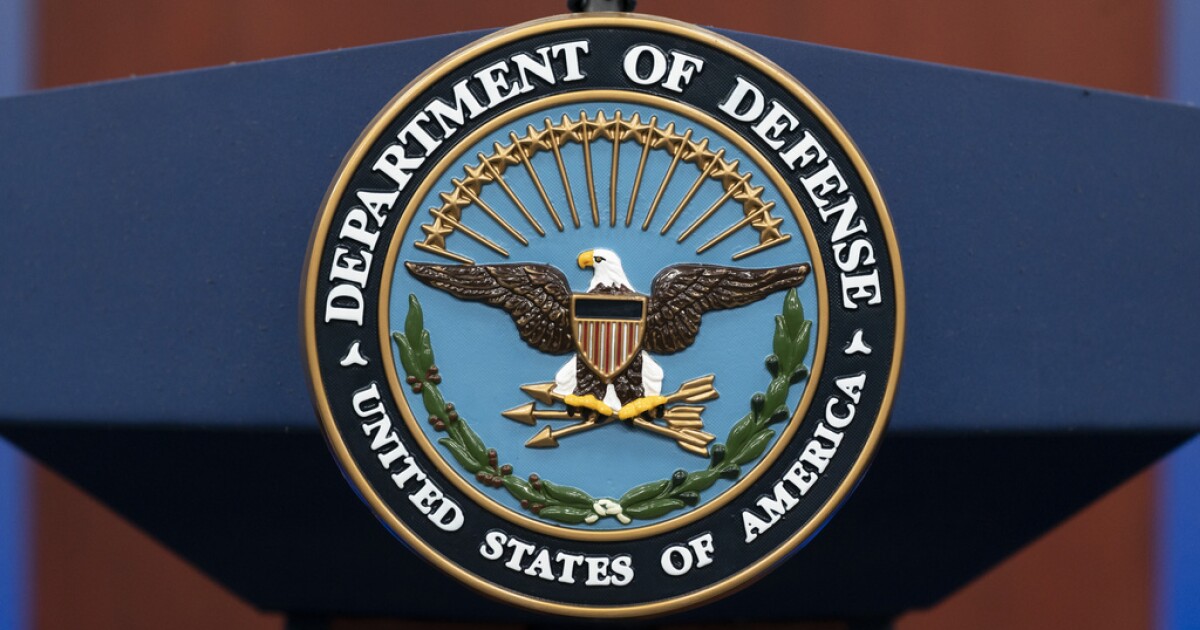

The Department of Defense will seek to separate adolescent children from their parents at on-base doctors’ offices, according to a Pentagon policy reviewed by the Washington Examiner.
Military doctors will routinely ask and sometimes demand, according to mother Amy Haywood, parents to leave the examination room for “alone time” with children once they become 12 and 13 years old. The department also keeps various medical records from parents starting at around the same age.
HUNTER BIDEN INVESTIGATION: DOJ BACKS DEVON ARCHER TESTIFYING, REJECTS OBSTRUCTION CLAIMS
“When a parent or guardian has authority to act on behalf of an unemancipated minor in making decisions related to health care, they are considered the personal representative for receipt of the minor’s PHI [protected health information],” a defense official told the Washington Examiner in a statement. “In those instances (e.g., mental health care, pregnancy, care for sexually transmitted diseases) where a minor is recognized as being able to provide informed consent for their own care, typically when they become adolescents, federal law under HIPAA protects their privacy interests.”
“Because of this, DoD cannot provide full online access to parents or guardians for adolescents,” the statement read.
The Defense Department’s policy also states that different state laws can be controlling on whether and when to cut parents out, but that when there are conflicting laws, their rules on privacy prevail and bureaucrats at the Defense Health Agency can ultimately decide.
Parents are able to access their child’s medical records through the Military Medical Treatment Facility Outpatient Medical Records Department, but only if the child has authorized the access or “when the encounter was not one for which the adolescent provided their own consent.”
The Defense Department’s policy came to light after Haywood, a military wife from Florida, experienced the realities when her family was stationed on a base overseas. In 2021, she took her adolescent daughter to the doctor and was asked to leave the room so the doctor could ask more “invasive” questions.
While she said some doctors will ask, others will “require” parental removal. Some parents on base were “pressured into leaving the room against their better judgement,” Haywood told the Washington Examiner.
When confronted with the same choice, Haywood said she “made it clear” she would not leave the room, and after the doctor “pushed back,” her daughter’s insistence that Haywood stay in the room superseded. “The doctor didn’t have a choice,” said Haywood, who declined to name the branch of military or base location for privacy reasons.
It is unclear why the department chooses to remove parents from the process, but the official’s citation of “mental health care, pregnancy, care for sexually transmitted diseases” offers insight into the reason. Separation from parents has been a growing policy among hospitals and states, with all 50 states keeping things such as sexually transmitted infection testing and treatment legally confidential for adolescents.
Academics from the Society for Adolescent Health and Medicine argued in 2014 that a chief concern for separating parents is that “protected information may be inadvertently disclosed to a parent via an automated appointment reminder.”
SAHM recommended that electronic health records vendors should function in a way that can “easily suppress” information and give parents access only to “nonconfidential information.”
The American Academy of Pediatrics, which is an active participant in pushing children to make their own medical decisions, particularly on issues of sexual health or gender identity, recommends the practice of separating parents.
One tool used by doctors to conduct a “psychosocial” review on adolescents is the home environment, education and employment, eating, peer-related activities, drugs, sexuality, suicide/depression, and safety from injury and violence assessment.
Included in the HEEADSSS review are questions concerning a child’s “sexual life,” including sexual orientation, whether they “enjoy” sexual activities, and their birth control regimen.
“What a terrible precedent to set and terrible life lesson — that we keep important secrets from those closest to us. How’s that going to work in a future marriage?” Haywood said. “Many of us are teaching our children to be people of integrity — doing the right thing even when no one is looking. We’re teaching them about honor and loyalty and being people of good character.”
She said the very topics from which doctors wish to block parents are the same ones “parents should be MOST involved in their adolescents’ lives in order to guide them with wise counsel.” That point is heightened by the fact that, in the case of many military families, the transience of moving around makes family doctors “strangers.”
“Frankly, if the doctor is a stranger, I have no idea if the doctor has wise counsel for my child. What is the doctor’s view on abortion? Does the doctor believe in the notion of a gender spectrum or the farce that a child can be born in the wrong body?” Haywood said. “I simply can’t trust a stranger to give my child the best advice on life. This is the parents’ job.”
CLICK HERE TO READ MORE FROM THE WASHINGTON EXAMINER
Nonetheless, the Defense Department’s Tricare online patient portal cut parents out of their child’s medical records at the age of 12, and the new Military Health System Genesis, which is the replacement for Tricare, cuts parents at the age of 13.
“This should be concerning to all Americans because this is happening in a military clinic — not a private hospital or private doctor’s office — this is the executive branch of the federal government,” Haywood said.




